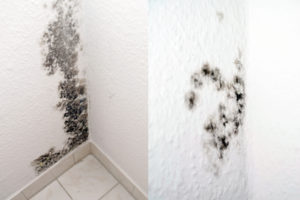NJ Gets Serious about Mold Calling It a BioAerosol

Mold is Now Called a BioAerosol
If the name bioaerosol sounds a bit scary, there’s a reason for that. Although bioaerosols are naturally occurring all around us, too many of them can cause disease or illness. Mold has been identified as a source of potentially hazardous bioaerosol particles, making it all the more important to call for NJ mold treatment after discovering mold.
Bioaerosols include tiny airborne microorganisms and their waste. In addition to mold, others include algae, bacteria, the flu virus, dust mites, and cat dander. Mold fungus creates tiny particles that invade the air around us, especially when mold grows indoors.
Health Effects of Bioaerosols
Our bodies can typically defend against small amounts of bioaerosols. Health problems start with pathogenic species or simply too many particles. Breathing in mold affects people who already have asthma or another respiratory condition, but anyone might become sick or develop allergic responses to mold.
The NJ Department of Health warns that mold bioaerosols can cause hypersensitivity diseases, which include asthma, rhinitis, pneumonitis, and humidifier fever. When such illnesses exist with the known presence of mold, it can be assumed that the mold is at least partially to blame.
Protection Against Mold Exposure
If you have found mold, the area must be thoroughly cleaned and treated. Our NJ mold treatment service comes with a free inspection to confirm the presence of mold. A deep cleaning of the home, including the HVAC system, may be necessary. However, the source needs to be cleaned so it does not continue releasing bioaerosols into the home.
Contact Stern Mold to schedule a visit and learn how our NJ mold treatment both eliminates mold and prevents it from returning.
